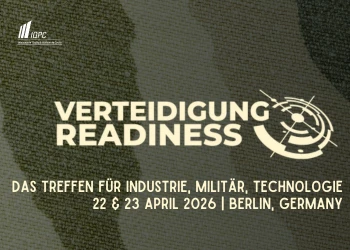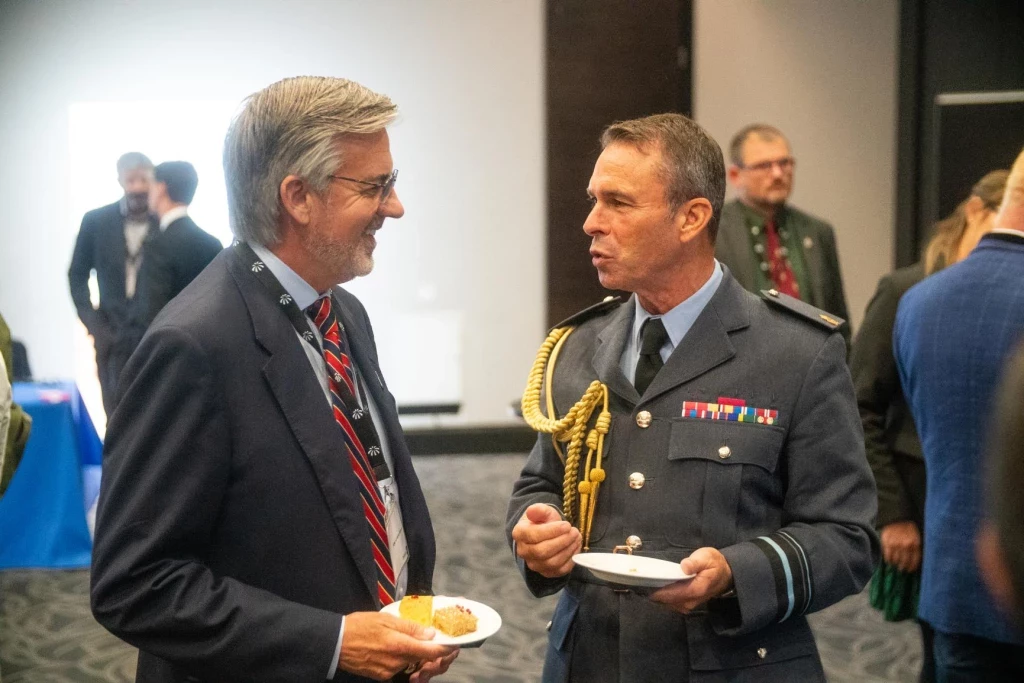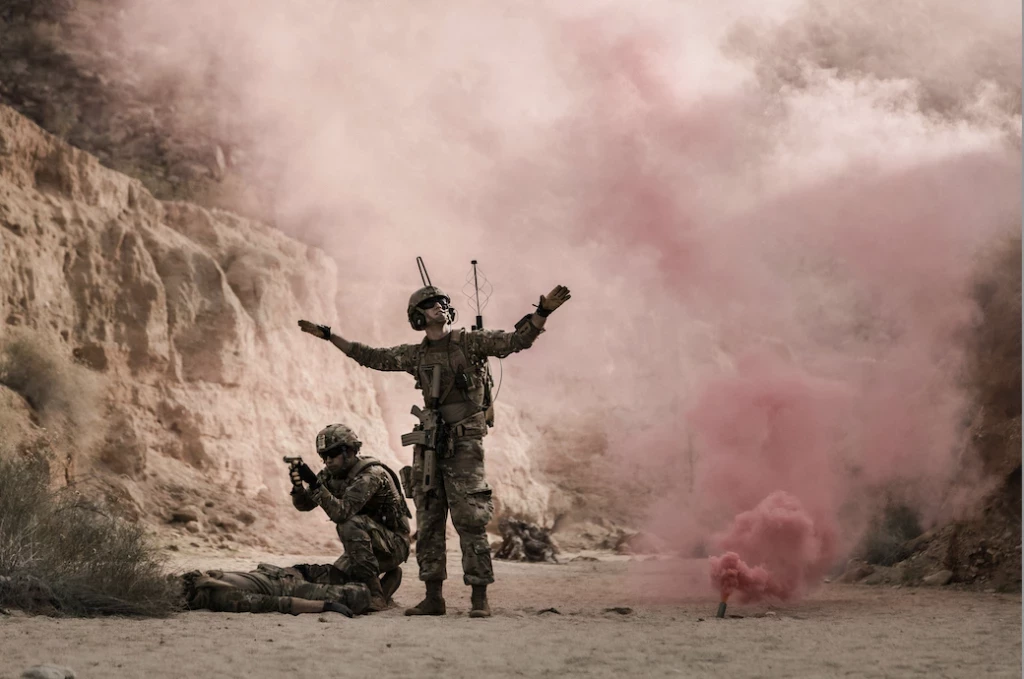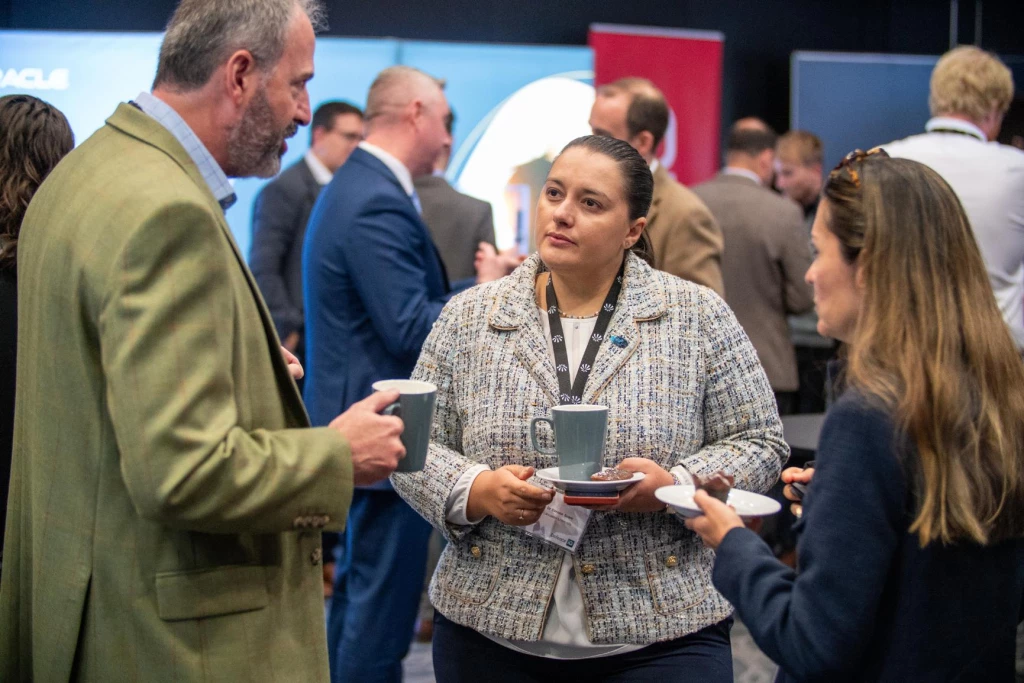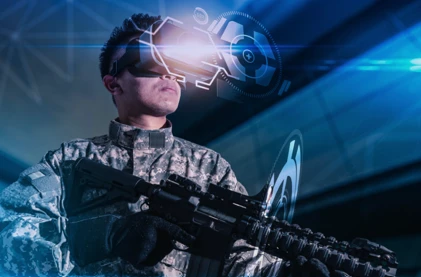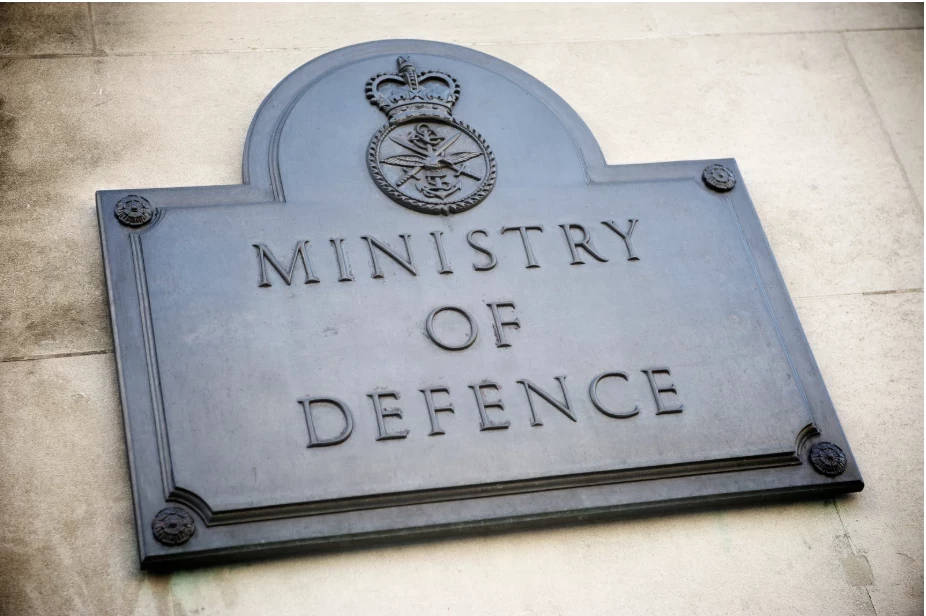Surgeon General discusses importance of partnerships
Add bookmarkThe Surgeon General, Surgeon Vice Admiral Philip Raffaelli, gave a speech at the Combat Trauma Innovation Conference in London yesterday about the need for partnerships in delivering care to troops.
Surgeon Vice Admiral Raffaelli started his speech saying that the exceptional care we are delivering to our soldiers, sailors and airmen is absolutely dependent on our approach to partnerships, adding that there is none more important than the one that we enjoy with the Department of Health and the NHS in the UK.
Surgeon Vice Admiral Raffaelli commented on the various external sources that have very favourably assessed our military medical systems, such as the House of Commons Defence Committee, National Audit Office and Healthcare Commission, who, he said, used the term 'exemplary' for the first time ever to describe Defence Medical Services (DMS) trauma and rehabilitation services.
More recently, Surgeon Vice Admiral Raffaelli said that the House Of Commons Defence Committee had published the first part of its review of the Armed Forces Covenant, focusing on military casualties.
The report commented on 'the extraordinary quality of care given to our Armed Forces almost from the point of wounding' and 'commends the Armed Forces medical services for the improvement in all aspects of the medical treatment of injured personnel in theatre'.
Surgeon Vice Admiral Raffaelli said:
"Today, while there are many challenges to being Surgeon General during a period of war, Iraq and Afghanistan have provided the background and the drivers for military medicine to move forward in a number of areas, especially where our requirements differ from those experienced in the NHS.
"The severe trauma found on operations from improvised explosive devices and high velocity gunshot wounds contrasts with the level of trauma commonly experienced in the NHS where motor vehicle accidents predominate.
"The sheer number of these cases that our people are experiencing on operations is also far greater than that in the NHS."
Surgeon Vice Admiral Raffaelli told the conference that when Colonel Mike Stewart, the then Defence Consultant Advisor in Orthopaedics, gave the eponymous Robert Jones address to the British Orthopaedic Association, he reported that the number of traumatic amputations seen in a typical six-week period in the UK Role 3 Hospital at Camp Bastion in Afghanistan is greater than that usually seen throughout the six years of specialist training to be an orthopaedic surgeon. He added:
"Despite the ferocity of these wounds, a lower percentage of injured personnel are dying of wounds than at any time in the past."
But he added, while we have undoubtedly made tremendous strides in many areas, there still remains much to do and to understand better.
Surgeon Vice Admiral Raffaelli said:
"Our success has resulted from a variety of initiatives, and these and other innovations will be an important feature of this conference. But it can be too easy to focus on such technical innovations, so further work is required to identify the contribution of each part. We also need to ensure that our treatment, as well as saving life, maximises the quality of life.
"Moreover, we are just starting to see those who have been most seriously injured emerging from their initial, extended period of rehabilitation. They will pose novel challenges which will require addressing, in conjunction with the NHS and others, as we support them into the future.
"And the very experience of war inevitably challenges and changes people and, for some, this can affect their mental health either at the time or later, so we continue to work with the Department of Health and others to support those affected.
"So there is much still to do and I am pleased to say that, even in these difficult financial times, this remains a high priority to the Government."
He said that we benchmark against the NHS and our principal allies and we aim to ensure that when personnel leave service they will be transferred efficiently to the NHS and continue to receive a high standard of care. He continued:
"I believe that one of the keys to our high quality care today is this reference to the National Health Service and to our allies. In the UK the NHS provides healthcare for all and dominates all aspects of healthcare.
"For the DMS that means our patients will have come from the NHS and will return to it after service. For our staff, they will undertake much of their professional training in the NHS and they maintain and develop their skills in the NHS, and they collaborate on research with the NHS, and many will find further employment in the NHS once they leave service.
"The Defence Medical Services have long recognised that inter-dependency and have established strong partnerships with the different parts of the NHS. That is important, indeed critical, for us, as is our relationship with our international partners."
Surgeon Vice Admiral Raffaelli said that his clinical priorities since taking up office have been:
- combat casualty care including limb salvage
- disease and non-battle injury, including infection control, on operations
- rehabilitation and military/civilian transition
- mental health
- hearing and environmental injury
- the development of a DMS-focused medical research network.
He added:
"These are intended to focus all of our activities in support of the MOD's declared main effort which is, of course, today the conflict in Afghanistan."
Surgeon Vice Admiral Raffaelli asked what does that mean in practice? A good example he said is military trauma, which is different to UK civilian trauma. He said the energy involved tends to be greater and also frequently involves blast injuries, either directly or indirectly, and patients' wounds are frequently heavily contaminated and infected.
Surgeon Vice Admiral Raffaelli said that the Defence Medical Services mission is to provide healthcare, medical operational capability and health advice to maximise the fighting power of the Armed Forces so that our troops are fit for role, with as few as possible unfit for operational deployment.
Surgeon Vice Admiral Raffaelli said that a National Audit Office review estimated the rate of military unexpected survivors as a proportion of all seriously injured survivors to be up to 25 per cent. The rate of unexpected survivors achieved by NHS hospital trusts between 2006 and 2009 ranged up to six per cent:
"There are a number of reasons why we are seeing these unexpected survivors," he said. "Some of it is due to the protective armour provided to soldiers today - which is being incrementally improved based on rapid feedback from the medical analysis of injury patterns.
"I believe that the integrated end-to-end nature of our patient care pathway, with clinical guidelines based on evidence, is one reason we are saving so many people."
Surgeon Vice Admiral Philip Raffaelli
"But I believe the principal reason is due to the care of Service personnel on operations today being provided by a wide range of people at every stage of the patient journey working in closely developed systems so that the care provided is seamless and integrated.
"And we audit and review continuously to identify best practice and feed the lessons learnt back into the training pathway. And we continue to seek external review; the Care Quality Commission - the successor to the Healthcare Commission - is currently carrying out an end-to-end assessment of the DMS.
"And I believe that the integrated end-to-end nature of our patient care pathway, with clinical guidelines based on evidence, is one reason we are saving so many people."
Surgeon Vice Admiral Raffaelli said that the UK Role 3 Hospital at Camp Bastion, the busiest trauma hospital in Afghanistan and probably in the world today, is achieving such success because patient care at Bastion is not only consultant-led but also very much a team effort, with integrated care involving anaesthetists, emergency medicine, orthopaedics, plastics and general surgery often working together at the same time on the same patient, moving together if required through the emergency department into theatre.
He continued:
"But if you go to the hospital and observe the teams at work, you will not be able to tell at first glance which are Army, Navy or RAF, which are Regular or Reserve, who are Allied clinicians or direct support from NHS personnel or even contractors.
"But we train them to work as integrated teams at the 2 Medical Brigade Army Medical Services Training Centre at Strensall and also at the Royal College of Surgeons of England training facility on the MOST course - Military Operational Surgical Training - which is run in partnership with the Royal College who are proud to recognise the MOST course as their premier example of simulation training."
Surgeon Vice Admiral Raffaelli said that the care that we provide in Afghanistan also involved a high usage of blood and blood products. He added:
"What is not always recognised is that we can do that because of the blood we receive from the Scottish and National Blood Transfusion Services who supply direct from the UK about two-and-a-half times that provided to a typical District General Hospital in the UK."
He continued by saying that:
"There will always be a need for us to look to the wider body of secondary care expertise within the NHS - indeed, I see that as the most appropriate model and I also have no doubt that one of the consequences of the Strategic Defence and Security Review will be that we will build on such a model in a number of areas.
"But one of the other important lessons has been to recognise the breadth of the partnership which contributes to the end-to-end care pathway today."
Surgeon Vice Admiral Raffaelli talked about the military community of excellence that is being established in the Midlands with, at its core, the Royal Centre for Defence Medicine, established in a partnership agreement with the University Hospitals Birmingham NHS Foundation Trust until 2038. He added:
"We have also established an academic unit located at the University of Birmingham Academic and Research Park, and we have the Defence School of Healthcare Studies down the road, in partnership with Birmingham City University.
"Just up the line, near Lichfield, are my new headquarters and those of the Joint Medical Command, which delivers all joint healthcare and training, and we are bringing the Defence Medical Services Training Group, currently at Keogh Barracks near Aldershot, to the site by 2014. The intent is to bring Defence medical healthcare, innovation and education into one community.
"I have no doubt that establishing that community of excellence and developing an ongoing research base is essential if we are to continue to push forward with improvements in patient care and improvements in both survival and quality of life. And we need to continue to do that even after the current conflict ceases as the benefits are of course not only for the military but for all of our patients.
"And that is why I am delighted with the establishment of the National Institute for Health Research unit for Surgical Reconstruction and Microbiology.
"This initiative is a collaboration between the NHS and the MOD together with our partners in Birmingham. This £20m unit is intended to become the focus for UK trauma research. We are also being supported by the Medical Research Council to the tune of £300,000 to help establish a collaborative network with other interested parties both in the UK and overseas."
[inlinead]


